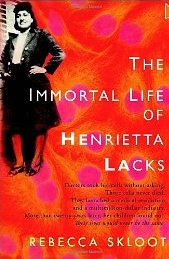January 5th, 2011 by DrCharles in Better Health Network, Health Tips, Opinion, Research
Tags: Artificial Hormones, Canned Tomatoes, Corn-Fed Beef, Coupon Foods, Eating Healthy, Farm-Raised Salmon, Fast Food, Food and Nutrition, Good Food Choices, Healthy Diet, Mircowave Popcorn, Nonorganic Apples, Nonorganic Potatoes, Peanut Butter, Processed Foods, rBGH-Free Milk, rBST Milk, The Examining Room of Dr. Charles
2 Comments »

 A patient reading a copy of Prevention in the waiting room brought to my attention an interesting article entitled “7 Foods That Should Never Cross Your Plate.” I would have to agree that these seven commonly eaten foods should be avoided, so I’ll rehash them here, along with three more of my own choosing to flesh out a New Year’s 7 + 3 = Top 10 list.
A patient reading a copy of Prevention in the waiting room brought to my attention an interesting article entitled “7 Foods That Should Never Cross Your Plate.” I would have to agree that these seven commonly eaten foods should be avoided, so I’ll rehash them here, along with three more of my own choosing to flesh out a New Year’s 7 + 3 = Top 10 list.
The lead into the article implores the reader to recognize that “clean eating means choosing fruits, vegetables, and meats that are raised, grown, and sold with minimal processing.” Michael Pollan, the regarded author of The Omnivores Dilemma and In Defense of Food, puts it even more simply: “Eat food. Not too much. Mostly plants.”
So here are the food items to avoid, in no particular order:
1) Canned Tomatoes – The resin that lines the corners of tin cans usually contains bisphenol-A, a compound found to produce estrogenic effects in the body, linked to heart disease, diabetes, obesity, and possibly neuro-developmental problems like ADHD. Tomatoes get picked on because their acidity increases the leaching of BPA into the food. Perhaps citrus foods and other acidic canned goods would have the same concerns.
2) Corn-Fed Beef – If you’ve ever watched the documentary Food Inc., you’ve probably been disgusted and appalled by the supply chain that brings meat to our tables and fast food restaurants. Bloated cows are being fed corn and soybeans, heavily subsidized crops controlled by Monsanto, to the detriment of their health. Eating their meat passes on the lower nutritional value to us, and perpetuates an immoral system of CAFO’s and cow concentration camps. Grass-fed beef, especially free range, is higher in vitamins, minerals, and has a healthier fat profile (better omega-3 to omega-6 fatty acid ratios). Bison tends to be grass fed, free-range, and of a superior nutritional quality. Eat Wild can help you find local farms that raise animals properly and often need your support. Think of the higher cost returning dividends on your health and as a charitable support of a good cause. Read more »
*This blog post was originally published at The Examining Room of Dr. Charles*
January 5th, 2011 by Elaine Schattner, M.D. in Better Health Network, Health Tips, News, Opinion, Research
Tags: Adult Brain, Alternative Medicine, Annals Of Internal Medicine, Brain Circuitry, Closed-Minded Doctor, Cognitive Fitness, Cognitive Health, Common Cold, Dr. Elaine Schattner, Dr. Oliver Sacks, Echinacea, General Medicine, IBS, Infectious Disease, Irritable Bowel Syndrome, Medical Lessons, National Center for Complementary and Alternative Medicine, NCCAM, Neurology, Open-Minded Doctor, Open-Mindedness, Placebo Effect, PLoS Medicine, PLoS ONE
No Comments »

Three recent stories lead me to my opening topic for the year: The value of open-mindedness. This characteristic — a state of receptiveness to new ideas — affects how we perceive and process information. It’s a quality I look for in my doctors, and which I admire especially in older people.
Piece #1 — On the brain’s maturity, flexibility and “cognitive fitness”
For the first piece, I’ll note a Dec 31 op-ed piece that appeared in the New York Times: This Year, Change Your Mind, by Dr. Oliver Sacks, the neurologist and author. In this thoughtful essay, he considers the adult brain’s “mysterious and extraordinary” power to adapt and grow: “I have seen hundreds of patients with various deficits — strokes, Parkinson’s and even dementia — learn to do things in new ways, whether consciously or unconsciously, to work around those deficits.”
With appropriate and very-real respect, I question Sacks’ objectivity on this subject — he’s referred some of the most outstanding (i.e. exceptional) neurological cases in the world. And so it may be that his careful reports are perfectly valid but not representative; for most of us, the adult brain’s capacity to establish new circuitry for language learning or music appreciation may be limited. What his stories do show is that unimaginably strange things happen in our brains, at least occasionally. And maybe we should just accept that and take notes (as he does so carefully), and keep an open mind. Read more »
*This blog post was originally published at Medical Lessons*
January 5th, 2011 by Toni Brayer, M.D. in Better Health Network, Book Reviews, Opinion, Research
Tags: Cardiology, Cell Biology, Cervical Cancer, Cloning, Diabetes, Dr. Toni Brayer, Endocrinology, Everything Health, First Human Cell Line, Gene Mapping, Genetics, Heart Disease, HeLa Cells, In Vitro Fertilization, Infectious Disease, IVF, Johns Hopkins Hospital, Medical Research, MS, Multiple Sclerosis, Neurology, Oncology, Polio Vaccine, Rebecca Skloot, Science In Medicine, The Immortal Life Of Henrietta Lacks
No Comments »

 If you like science, true history, and an engaging story, pick up the new book by journalist Rebecca Skloot, “The Immortal Life of Henrietta Lacks” and prepare for a great read. I knew nothing about the young black woman whose cells were taken back in 1951 by a scientist at Johns Hopkins Hospital and how those cells have revolutionized modern cell biology and research.
If you like science, true history, and an engaging story, pick up the new book by journalist Rebecca Skloot, “The Immortal Life of Henrietta Lacks” and prepare for a great read. I knew nothing about the young black woman whose cells were taken back in 1951 by a scientist at Johns Hopkins Hospital and how those cells have revolutionized modern cell biology and research.
The HeLa (named after HEnrietta LAcks) cells were taken as she lay dying on the “colored” ward at Johns Hopkins Hospital of aggressive cervical cancer at age 30. Everyone who studies basic cell biology has heard of HeLa cells because they were the first human cell line to be successfully grown in culture and they are alive today. HeLa cells were sent to researchers all across the globe and have been used to develop the polio vaccine, viruses, cloning, gene mapping and in-vitro fertilization. Billions of the same immortal HeLa cells are used by researchers fighting cancer, multiple sclerosis, heart disease, and diabetes. Read more »
*This blog post was originally published at EverythingHealth*
January 5th, 2011 by BobDoherty in Better Health Network, Health Policy
Tags: ACP Advocate, Age 65, Aging Adults, Aging Americans, American College Of Physicians, Baby Boomers, Baby-Boom Generation, Bob Doherty, Fixing American Healthcare, Healthcare reform, Kathleen Casey-Kirschling, Medicare Benefits, Medicare Eligibility, New U.S. Healthcare System, Older Adults
No Comments »

On January 1, Kathleen Casey-Kirschling became the first of the baby-boom generation to qualify for Medicare. She’s hardly alone: The baby-boom generation will cause enrollment in Medicare to soar. According to the Kaiser Family Foundation, Medicare enrollment will increase from 47 million today to 64 million in 2020 to 80 million people by 2030. At the same time, the ratio of workers paying into the program to support each Medicare enrollee will drop from 3.4 (2010) to 2.8 (2020) and then to 2.3 workers per beneficiary in 2030, denying the program the tax revenue needed to sustain it.
What happens then? Well, the President and Congress would have a dismal menu of political and policy choices. They could impose huge tax increases, inflicting great harm on working families and the economy, and they probably couldn’t raise enough money anyway from taxes without other changes in the program.
They could slash benefits for everyone enrolled in Medicare, impose means-testing so only low-income elderly would qualify, increase beneficiaries’ out-of-pocket contributions, limit access to beneficial services (rationing, anyone?), cut how much Medicare pays doctors and hospitals, and/or privatize the program (but if you are over 65 and have chronic health conditions, good luck finding affordable private health insurance). Read more »
*This blog post was originally published at The ACP Advocate Blog by Bob Doherty*
January 5th, 2011 by AnneHansonMD in Better Health Network, Humor, News, Research
Tags: Aggressive Patients, Breast Cancer, Breath Acetone Detection, breath test, Canine Scent Detection, Diabetes, Diagnosis and Scent, Dogs Sniffing Out Cancer, Dr. Anne Hanson, Endocrinology, fMRI, Lie Detection, Lung Cancer, Medical Humor, Mental Health, Mental Illness, My Three Shrinks, Oncology, Patient Violence, Pheromone, Psychiatry and Psychology, Sense Of Smell, Shrink Rap, Smelling Schizophrenia, The Nadjik Pheromone
No Comments »



 I was surfing around the Net one day and I found this article about scientists who are creating a machine that will detect acetone in someone’s breath. Acetone can be a sign that someone suffers from diabetes, so in theory this machine could use scent to diagnose this disease.
I was surfing around the Net one day and I found this article about scientists who are creating a machine that will detect acetone in someone’s breath. Acetone can be a sign that someone suffers from diabetes, so in theory this machine could use scent to diagnose this disease.
That story brought to mind other stories I’ve heard about people using dogs to sniff out cancer in people. According to this article:
“The results of the study showed that dogs can detect breast and lung cancer with sensitivity and specificity between 88% and 97%. The high accuracy persisted even after results were adjusted to take into account whether the lung cancer patients were currently smokers. Moreover, the study also confirmed that the trained dogs could even detect the early stages of lung cancer, as well as early breast cancer.”
People have even tried “smelling” schizophrenia. Read more »
*This blog post was originally published at Shrink Rap*
 A patient reading a copy of Prevention in the waiting room brought to my attention an interesting article entitled “7 Foods That Should Never Cross Your Plate.” I would have to agree that these seven commonly eaten foods should be avoided, so I’ll rehash them here, along with three more of my own choosing to flesh out a New Year’s 7 + 3 = Top 10 list.
A patient reading a copy of Prevention in the waiting room brought to my attention an interesting article entitled “7 Foods That Should Never Cross Your Plate.” I would have to agree that these seven commonly eaten foods should be avoided, so I’ll rehash them here, along with three more of my own choosing to flesh out a New Year’s 7 + 3 = Top 10 list.

















